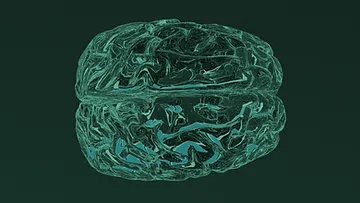Alpha-theta brainwave neuro-feedback therapy for Vietnam veterans w/ combative post-traumatic stress

Peniston, E.G. & Kulkosky, P.J.
Extensive clinical studies have demonstrated the consistent and devastating after-effects that combat can have on the human psyche. Post-Traumatic Stress Disorder (PTSD) in veterans has been known to involve maladaptive behavior issues including chronic states of anxiety, recurring nightmares, flashbacks, depression, panic attacks, and vivid re-experiencing of extremely traumatic combative experiences.
There is promising evidence that EEG alpha-theta neurofeedback training can be used as an effective treatment for stress disorders. This study focused on 3 objectives: (1) evaluating the effectiveness of EEG neurofeedback in treating combat-related nightmares of traumatic situations; (2) determining the effectiveness of neurofeedback therapy in reducing the use of psychotropic medications in treating PTSD; (3) comparing personality changes in PTSD patients who have been treated with EEG neurofeedback training versus traditional medical therapy.
The veterans assigned to the brainwave training group underwent eight 30-minute sessions of temperature biofeedback training and thirty 30-minute sessions of alpha-theta neurofeedback training. Prior to these sessions, a medical psychotherapist introduced the subjects to training exercises intended to relax the body and quiet the mind. They then applied these techniques when asked to recall the traumatic combat events visualized in their nightmares and flashbacks. The attainment of a “theta state” was then coupled with both positive temperature and audio feedback. The “theta state” is evocative of hypnagogia, or the transitional state between wakefulness and sleep. It has been observed to support the accessing of unconscious states. The veterans assigned to the traditional medical control group were treated with psychotropic medications coupled with individual and group therapy.
Following the training sessions, subjects in the brainwave training group reported reduced PTSD symptoms and reduced anxiety-provoking traumatic recurring nightmares and flashbacks. Only 3 of the 15 veterans assigned to the brainwave training group reported disturbing nightmares or flashbacks after a 30-month follow-up period. They also had significant reductions in their antidepressant and antianxiety medication use. Subjects of the brainwave training group additionally showed significantly lower Minnesota Multiphasic Inventory (MMPI) PTSD scores, which evaluate a variety of factors such as anxiety, obsessiveness, and depression. It appeared that the alpha-theta neurofeedback therapy allowed these veterans to become conscious of their repressed combat-related, anxiety-provoking events by reliving them through hypnagogic imagery. By comparison, the veterans in the traditional medical treatment group did not see improvement in the reduction of traumatic nightmares/flashbacks, psychotropic medication use, or MMPI PTSD scores. All fourteen subjects of this group had relapsed by 30 months after treatment. As a result, brainwave neurofeedback training appears to be clinically superior for long-term prevention of PTSD relapse and stands out as a promising alternative to traditional treatment modalities. It has even been suggested that traditional medical treatments such as group therapy and individual psychotherapy only reinforce and ventilate post-traumatic stress behaviors.

